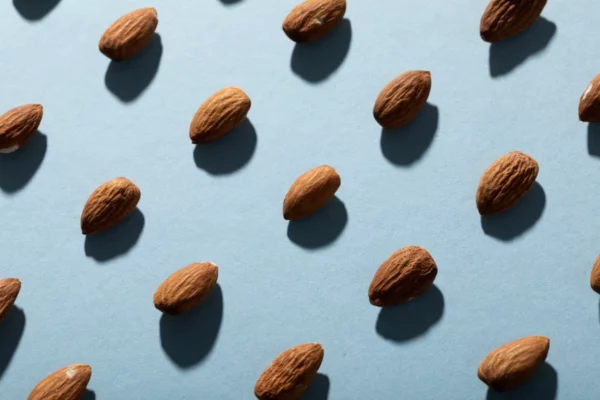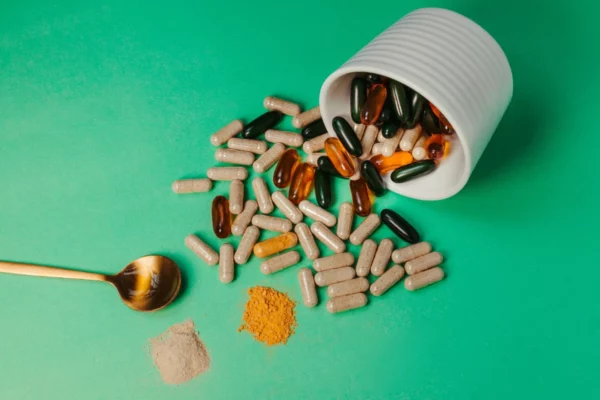The Power of Prebiotics for Weight Loss and Gut Health
The incredible relationship between our gut health and overall well-being is no longer a secret. One of the key players in this complex ecosystem of our body is prebiotics. As we unravel these dietary fibers’ many roles, we find them connected to everything from gut health to immune function, mental health, and weight management. This comprehensive guide aims to answer the ten most commonly asked questions about the best prebiotic supplements for weight loss. Let’s dive in.
Frequently Asked Questions about Prebiotics for Weight Loss
Based on our research and interaction with readers, we’ve compiled a list of the most commonly asked questions about prebiotic supplements and their role in weight loss. Here are the top 10 questions we will delve into:
1. What are prebiotics, and how do they support weight loss?
2. How do prebiotics promote a healthy gut microbiome?
3. What is the connection between prebiotics and immune function?
4. How do prebiotics impact mental health?
5. What are the top five prebiotic-rich foods for weight loss?
6. How to incorporate prebiotic-rich foods into a weight-loss diet?
7. What are the best prebiotic supplements for weight loss?
8. Can prebiotic supplements replace a balanced diet?
9. What are the potential side effects of prebiotic supplements?
10. Are there specific prebiotic strains beneficial for weight loss?
What are Prebiotics, and How Do They Support Weight Loss?
Understanding the power of prebiotics starts with understanding what they are. Prebiotics are a type of dietary fiber that our bodies can’t digest. Instead, they serve as food for the beneficial bacteria, or probiotics, in our gut, helping them thrive. These fibers act as natural fertilizers, promoting the growth of gut-friendly bacteria, which, in turn, contribute to our overall health.
A balanced gut microbiota is integral to efficient digestion and the production of key vitamins. Moreover, it plays a pivotal role in our immune function and can influence our mental health. By fostering the growth of beneficial bacteria, prebiotics aid in balancing our gut microbiota, the community of microbes living in our digestive tract.
So, how does this link to weight loss? When your gut microbiota is balanced, your body’s ability to absorb minerals and regulate energy is enhanced. Additionally, these gut-friendly bugs use prebiotics as fuel, breaking them down and transforming them into useful substances, including short-chain fatty acids that help manage weight.
One such fatty acid, acetate, has been linked to appetite regulation. Another, propionate, may prevent weight gain by reducing the impact of high-calorie foods. Butyrate, the third type of short-chain fatty acid, is associated with fat metabolism. These compounds work together to help maintain a healthy weight by reducing inflammation, improving gut health, and reducing risk factors for obesity.
Interestingly, a study published in the Journal of Nutrition in 2023 indicated that prebiotic-rich diets could positively influence weight management and heart health. It demonstrated that people consuming higher amounts of prebiotic fiber had lower body weight, lower body fat, and less abdominal fat than those consuming less of these fibers.
How Do Prebiotics Promote a Healthy Gut Microbiome?
A healthy gut microbiome is key to our overall health. It’s integral to efficient digestion, production of key vitamins, immune function, and even our mental health. Balancing our gut microbiota is where prebiotics play a significant role. As mentioned earlier, prebiotics are dietary fibers that our bodies can’t digest. Instead, they serve as food for the beneficial bacteria, or probiotics, in our gut.
There’s an intricate dance between our diet and our gut microbiome. When we consume prebiotic-rich foods, we feed the beneficial bacteria in our gut. These bacteria, in turn, break down the prebiotics into short-chain fatty acids. These fatty acids nourish the cells lining our colon, enhancing our body’s ability to absorb minerals, reduce inflammation, and maintain a healthy weight.
A 2022 study by the Harvard Medical School emphasized the beneficial role of prebiotics in preventing gastrointestinal disorders, improving immune function, and even reducing the risk of certain cancers. The research showed that prebiotics could aid the growth of beneficial bacteria such as Bifidobacteria and Lactobacilli, which are associated with improved gut health and immune function.
Several other studies have demonstrated similar findings, further underscoring the crucial role of prebiotics in maintaining a healthy gut microbiome. The diversity of our gut microbiota is equally important. Consuming a wide variety of prebiotic-rich foods can help ensure that a diverse range of beneficial bacteria thrives in our gut.”
| Question | Key Point |
|---|---|
| What is a prebiotic supplement? | Non-digestible food ingredients that feed probiotics and promote good bacteria growth. |
| How do prebiotics aid weight loss? | Prebiotics enhance gut health, which plays a significant role in weight management. |
| What are the most effective prebiotic supplements? | Inulin, Fructooligosaccharides (FOS), and Galactooligosaccharides (GOS) are considered the most effective. |
| Are there side effects to prebiotic supplements? | Side effects are usually mild, but may include bloating, flatulence, stomach cramps, and diarrhea. |
| How to choose the best prebiotic supplement for weight loss? | Consider factors such as dietary needs, supplement form, third-party testing, and reputable brand. |
What is the Connection Between Prebiotics and Immune Function?
Prebiotics have been increasingly recognized for their role in supporting the immune system. The connection between our gut health and immune function is intricate and profound. Approximately 70% of our immune cells reside in the gut, making the gut microbiome’s health essential for a robust immune response.
Prebiotics contribute to immune function by helping balance the gut microbiota, which forms an important line of defense against pathogens. They achieve this by promoting the growth of beneficial bacteria, which compete with harmful bacteria for resources, reducing their chances of establishing a foothold in our gut.
Prebiotics also stimulate the production of short-chain fatty acids, which have anti-inflammatory properties. These fatty acids can modulate the immune system’s response, reducing excessive inflammation that could potentially damage our tissues. This action is critical because chronic inflammation is a common factor in many diseases, including heart disease, diabetes, and certain types of cancer.
Furthermore, prebiotics play a role in maintaining the integrity of the gut lining. A healthy gut lining acts as a physical barrier, preventing harmful bacteria and toxins from leaking out of the gut and into the bloodstream, a phenomenon commonly known as “leaky gut.” By bolstering the gut lining, prebiotics help maintain this barrier function, enhancing our body’s defenses.
In addition, several studies have shown that prebiotics can enhance the body’s immune responses. For example, a study published in the Journal of Clinical Gastroenterology in 2022 found that prebiotic supplementation could increase the body’s production of natural killer cells, a type of white blood cell that plays a crucial role in our defense against viruses and cancer cells.
How Do Prebiotics Impact Mental Health?
The gut-brain axis – the bidirectional communication system between our digestive tract and our brain – has been a topic of increasing research interest in recent years. Researchers have found that the state of our gut health can profoundly impact our mental well-being, with prebiotics playing a key role in this connection.
Prebiotics influence our mental health by promoting a healthy gut microbiome. A balanced microbiome not only aids in digestion and nutrient absorption but also produces a variety of compounds that can influence brain function. For example, certain strains of gut bacteria produce neurotransmitters like serotonin and dopamine, which play key roles in mood regulation.
The gut microbiota can also modulate the body’s stress response. Chronic stress can cause changes in gut bacteria, potentially leading to an overgrowth of harmful bacteria. However, a diet rich in prebiotics can support the growth of beneficial bacteria, helping to maintain balance and potentially reducing stress-related changes in the gut.
Furthermore, prebiotics contribute to the production of short-chain fatty acids, which have been linked to brain health. One type of short-chain fatty acid, butyrate, has been shown to reduce inflammation in the brain and promote neural health.
Several studies have supported the role of prebiotics in mental health. For instance, a 2021 study published in the Journal of Psychopharmacology found that prebiotic supplementation could improve sleep quality and reduce the physiological impact of stress. In another study from the Brain, Behavior, and Immunity journal in 2023, prebiotic supplementation was associated with reduced anxiety and improved cognitive function.
Can Prebiotics Help to Control Blood Sugar Levels?
The role of prebiotics in controlling blood sugar levels has been the subject of many studies. They play a crucial role in this aspect by impacting gut health and regulating nutrient absorption, particularly the absorption of carbohydrates.
In essence, prebiotics work by promoting the growth of beneficial gut bacteria. Some bacteria can convert dietary fibers, including prebiotics, into short-chain fatty acids. Short-chain fatty acids improve the body’s insulin sensitivity, which is crucial for blood sugar control.
Moreover, prebiotics can slow down digestion, leading to a more gradual release of glucose into the bloodstream. This slower release helps prevent the sharp spikes in blood sugar often seen after meals, a phenomenon known as postprandial hyperglycemia.
Certain prebiotics, like inulin and fructooligosaccharides, have been specifically researched for their potential role in blood sugar control. A study published in the American Journal of Clinical Nutrition in 2022 found that daily supplementation with these prebiotics led to a significant reduction in fasting blood sugar levels in subjects with type 2 diabetes.
Additionally, the benefits of prebiotics extend beyond blood sugar control. They have been found to promote a feeling of fullness or satiety, which can aid in weight management. Since obesity is a major risk factor for type 2 diabetes, this effect further contributes to the potential benefits of prebiotics in blood sugar regulation.
What Role do Prebiotics Play in Weight Management?
The connection between gut health and weight management has been increasingly recognized in scientific literature. As prebiotics can significantly impact gut health, they also play an important role in weight management.
Prebiotics help manage weight by promoting the growth of beneficial bacteria in the gut. These bacteria assist in digesting fibers that the body can’t digest on its own, leading to the production of short-chain fatty acids. These fatty acids have been associated with increased feelings of fullness and decreased appetite, which can naturally help in controlling calorie intake.
Additionally, prebiotics have been found to influence the hormones involved in appetite regulation. For instance, they can stimulate the production of GLP-1 (glucagon-like peptide-1), a hormone that signals the brain to stop eating when the body is full. By helping to regulate these hormones, prebiotics can potentially help to manage weight.
A 2021 study published in the Journal of Nutrition found that daily supplementation with a particular prebiotic, oligofructose, led to weight loss in overweight adults. The researchers hypothesized that the weight loss was due to an increase in gut bacteria that produce GLP-1.
Moreover, prebiotics may also aid weight management by promoting better nutrient absorption. Improved nutrient absorption can lead to a more efficient metabolism, which can help in burning calories and managing weight.
| Ingredient | Effect on Weight Loss |
|---|---|
| Inulin | Helps control appetite by promoting feelings of fullness |
| Fructooligosaccharides (FOS) | May reduce calorie intake by reducing hunger levels |
| Galactooligosaccharides (GOS) | Could play a role in weight management and obesity prevention |
| Apple Cider Vinegar | May help with weight loss by promoting satiety and lowering blood sugar levels |
| Probiotics (Lactobacillus gasseri, Bifidobacterium lactis) | Potential to reduce belly fat and body weight |
Are There Any Side Effects of Taking Prebiotics?
While prebiotics are generally safe for most individuals, they may cause some side effects. These are typically mild and often subside as your body gets used to the supplement.
Common side effects include bloating, gas, and stomach cramps. These are a result of the fermentation process in the gut, which happens when the beneficial bacteria break down the prebiotic fibers. These symptoms may be more pronounced in people who have sensitive stomachs or in those who are new to prebiotics.
It’s advisable to start with a lower dose and gradually increase as your body adjusts to avoid these symptoms. If these side effects persist, it may be a sign that you need to reduce your dosage or consider a different type of prebiotic.
Certain prebiotics, like inulin, may not be well tolerated by all individuals and can lead to more pronounced side effects. It’s essential to talk to your healthcare provider before starting any new dietary supplement, including prebiotics.
How Long Should I Take Prebiotics for Weight Loss?
There’s no standard duration for taking prebiotics for weight loss as the effectiveness can vary from person to person. Several factors come into play, including individual metabolism, diet, and physical activity levels.
However, most research studies suggest a period of at least 12 weeks to see significant changes in weight loss and gut health. A 2022 study published in the Journal of Nutrition found that subjects who took prebiotic supplements for 12 weeks experienced a significant reduction in body weight and improved gut microbiota composition.
Remember, prebiotics are not a magic bullet for weight loss. They should be taken as part of a healthy diet and lifestyle, including regular physical activity. Consistency is key when taking prebiotics for weight loss, and it’s essential to continue with the supplementation even after reaching your weight loss goals to maintain gut health.
Can I Take Prebiotics with Other Supplements?
Yes, prebiotics can be taken with other dietary supplements. In fact, they are often included in combination with other gut health supplements like probiotics, forming what’s known as a synbiotic.
Synbiotics provide both the beneficial bacteria (probiotics) and the food they need to thrive (prebiotics), ensuring a healthy gut microbiota. A 2022 study published in the British Journal of Nutrition found that taking synbiotics led to improved gut health and better weight loss results than taking either prebiotics or probiotics alone.
However, it’s always recommended to talk to your healthcare provider before starting any new supplement regimen, especially if you’re already taking other supplements or medications. They can provide guidance on the right dosage and possible interactions.
Which Foods are High in Prebiotics?
Prebiotics are found naturally in many foods. These include fruits, vegetables, and whole grains that contain dietary fiber. Some of the best sources of prebiotics include:
* Onions
* Garlic
* Bananas
* Asparagus
* Barley
* Oats
* Apples
* Cocoa
* Flaxseeds
While it’s beneficial to include these foods in your diet, it might be challenging to consume enough prebiotics through diet alone. This is where prebiotic supplements can be useful, providing a concentrated source of prebiotics that can help boost gut health and support weight loss.
In the next part, we will provide a comprehensive conclusion of the entire article based on the information provided in these sections.
The Comprehensive Guide to Prebiotic Supplements for Weight Loss
In this long-form article, we’ve explored the most commonly asked questions about prebiotic supplements for weight loss. Prebiotics play a significant role in maintaining healthy gut microbiota, which can directly impact weight loss and overall health. They offer potential benefits such as reduced appetite, better nutrient absorption, and an overall healthier metabolic profile, which can significantly contribute to weight loss efforts.
While prebiotics can be found in certain foods, it’s often challenging to get enough of them in a typical diet. This is where prebiotic supplements come into play. Some of the best prebiotic supplements include those that contain inulin, fructooligosaccharides (FOS), galactooligosaccharides (GOS), and xylooligosaccharides (XOS).
Although prebiotics are generally safe for most people, they can cause mild side effects, including bloating, gas, and stomach cramps. These symptoms usually subside as your body adjusts. It’s important to remember that while prebiotics can aid in weight loss, they are not a quick fix. Consistent use, combined with a balanced diet and regular physical activity, will yield the best results.
You can also take prebiotics with other supplements. They are often combined with probiotics to create synbiotics, which can lead to even better gut health and weight loss outcomes. However, it’s always recommended to consult with a healthcare provider before starting any new supplement regimen.
Through an understanding of the role and benefits of prebiotics, individuals can make informed decisions about their use as part of a comprehensive weight management strategy. Remember, a healthy gut is the cornerstone of overall wellness and achieving your weight loss goals.
Unveiling the Power of Probiotics and Prebiotics: A Roadmap for Healthy Weight Loss
The journey to better health and weight loss is a significant undertaking. Many clinical trials suggest that certain probiotic strains can help reduce waist circumference and fat mass, contributing to healthy weight loss. Probiotics are live microorganisms beneficial for gut health, like *L. acidophilus* and *L. rhamnosus*, in particular, has shown positive effects on fat storage and can support weight management combined with a balanced diet and regular exercise.
Prebiotics, on the other hand, are types of dietary fiber that feed these good bacteria in our gut. Together, these play a crucial role in digestive health and offer an array of health benefits.
| Strain | Common Source | Potential Benefit |
|---|---|---|
| Lactobacillus gasseri | Fermented foods, probiotic supplements | May help reduce fat storage and waist circumference |
| Bifidobacterium lactis | Fermented milk products, probiotic supplements | Might contribute to healthy weight loss |
| Lactobacillus rhamnosus | Dairy products, probiotic supplements | Associated with weight loss in various studies |
| Lactobacillus plantarum | Fermented foods, probiotic supplements | Some studies suggest it could help manage weight |
| Prebiotic fiber supplements | Natural fiber-rich foods, prebiotic supplements | Support the growth of beneficial gut bacteria, aiding in weight management |
A powerful supplement can be a synbiotic supplement, a blend of probiotics and prebiotics. They work in tandem to boost the growth of good bacteria and maintain a balanced digestive system.
Among the best probiotic supplements, a key consideration is the number of colony-forming units (CFUs), referring to the live bacteria count in the supplement. Probiotic products should also be able to survive stomach acid to effectively reach the small intestine, where they can render their health benefits. In this context, third-party testing can ensure product quality and safety.
Furthermore, it’s worth noting that using probiotics and prebiotics might have different outcomes for each person. Some might experience significant reductions in belly fat, while others might notice improvements in their digestive issues, energy levels, or inflammatory bowel disease symptoms. These supplements are also useful in managing conditions like irritable bowel syndrome (IBS).
When it comes to prebiotics, the best prebiotic fiber supplement will vary depending on individual needs and tolerances. Some popular choices are those that contain inulin or other natural ingredients like apple cider vinegar. These prebiotic fiber supplements can be taken in various ways – in supplement form, as part of daily meals, or even as part of a daily probiotic supplement regimen.
Remember, choosing the best probiotics and prebiotics for your needs involves understanding your health goals and considering the scientific research behind the strains and formulas you’re interested in. It is always advised to consult a healthcare professional before adding a new supplement to your routine. Probiotics and prebiotics can be a powerful part of your weight loss journey, offering a natural path to better health. But like all weight loss strategies, they work best with other healthy lifestyle habits.









